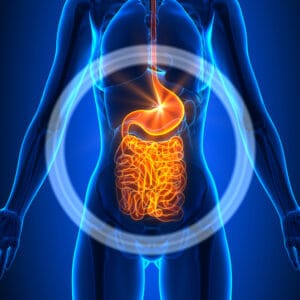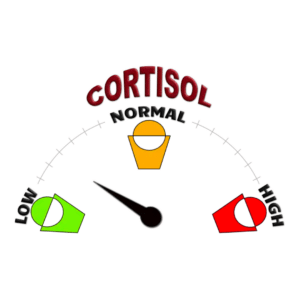Earlier this year, Harvard professor Karen Michels proclaimed in a German lecture that coconut oil is “pure poison”. This comment took English-speaking media outlets by storm and went viral within days.
However, it came as no surprise to most of us in the nutritional therapy world. Only last year, the Harvard Medical School posted a blog about coconut oil asking the broad question: how can something that’s “chock-full of saturated fat – a known culprit in raising heart disease risk – be good for you?”1.
According to Joseph Mercola MD, this is simply another promotion of the American Heart Association’s (AHA) view that saturated fats clog the arteries, despite an abundance of published nutritional science to the contrary2, 3.
How can something that’s “chock-full of saturated fat – a known culprit in raising heart disease risk – be good for you?”
Michels went on to say that replacing saturated fats with polyunsaturated fats, such as vegetable oil and margarine, might cut heart disease risk. However, this is not a view shared by Frances Sladek PhD, toxicologist and professor of biology, who maintains that when vegetable oils like corn oil and sunflower oil are heated, high levels of cancer-causing chemicals are produced. This is in sharp contrast to the low levels produced by coconut oil and other saturated fats4.
A little bit of history about the proclaimed cardiovascular health risks attributable to dietary saturated fat
The vilification of saturated fat and the corresponding low-fat myth took hold in the 1960s. At that time, Ancel Keys, nutritionist at the University of Minnesota, secured places for himself on the boards of influential bodies in American healthcare, including the AHA. From there, he and his allies issued authoritative advice to the nation showing a correlation between saturated fat intake and death from heart disease.
Although he had shown this correlation, he had not excluded the possibility that heart disease was being caused by something else. Years later, research on which he relied was questioned and it was found that the food that correlated most closely with deaths from heart disease was not saturated fat, but sugar5. By then, the fat hypothesis had taken hold despite mounting scientific evidence discounting the effectiveness of low-fat diets, which had been shown as part of a 50-year fad with disastrous outcomes6, 7.
Researchers have also discounted the notion that having high cholesterol is a main contributor to heart disease5. This is the fundamental premise on which the AHA and Michels conclude that saturated fats and coconut oil, in particular, are bad for you. When it comes to LDL cholesterol (the so-called “bad” one), particle size and number are relevant5.
There are large fluffy particles (low risk) and small dense ones (high risk). Although we didn’t have this information in the 1960s, we have it now and it is of pivotal importance as a risk factor for heart disease5. It comes as no eye-opener that sugar encourages harmful small dense LDLs, whereas saturated fats promote the safer fluffier ones5.
Understanding your fats
Very simply put, dietary fat can be classified into two broad categories: saturated and unsaturated fats. Saturated fats are mostly animal-derived, although some are extracted from plants. They include butter, lard, dripping, coconut oil and palm oil, and are generally solid at room temperature. Unsaturated fats mostly originate from plants and include nut oil and olive oil. They are liquid. Trans fats (or hydrogenated fats) are chemically-altered unsaturated fats converted into solid trans fats.
Whereas unsaturated fats are generally regarded as beneficial, we have been receiving mixed messages about the healthfulness or otherwise of saturated fats over the years.
Whereas unsaturated fats are generally regarded as beneficial, we have been receiving mixed messages about the healthfulness or otherwise of saturated fats over the years. Trans fats are the least healthy of all fats because they are difficult for our bodies to process and are associated with type 2 diabetes, heart disease and stroke.
Hydrogenated fats is the “bad word” to look out for and avoid in this regard. The hydrogenation process makes them suitable for industrial-scale baking and prolongs shelf-life. Examples of foods that may contain hydrogenated fats are stick margarine, fast foods, commercially-baked goods, fried foods and processed foods.
Whether a fat is classified as either saturated or unsaturated depends on the way the carbon atoms in the fat molecules are connected to each other. In unsaturated fat molecules, the carbon atoms are linked by double bonds, making it possible for one of them to loosen and connect to a passing hydrogen atom. Monounsaturated fats contain one double bond and polyunsaturated fats contain many.
Examples of monounsaturated fats are olive oil and avocado. Polyunsaturated fats are the omega 3 fatty acids contained in oily fish, and the omega 6 fatty acids contained in certain nuts and seeds.
In saturated fat molecules, the carbon atoms are held together with single bonds, making it impossible for a bond to loosen in the same way as unsaturated fats. The fat molecules have all their carbon atoms fully “saturated” with hydrogen atoms already. This makes them more heat-stable, and that is why saturated fats such as butter, lard, goose fat and coconut oil are recommended for cooking.
The saturated fats found in meat, dairy and other vegetable oils are different to the saturated fats found in coconut oil.
The saturated fats found in meat, dairy and other vegetable oils are different to the saturated fats found in coconut oil. These fats are known as ‘long chain fats’, whereas around two-thirds of the saturated fatty acids found in coconut oil are ‘medium chain triglycerides (MCTs)’. Long chain fats are slowly digested and absorbed through the intestinal wall where they combine into parcels of fat and protein called lipoproteins. These are distributed throughout our bodies through our bloodstream.
MCTs are metabolised differently. They are shorter, and when you eat them they are transported directly to the liver, where they are rapidly broken down and absorbed. When the liver breaks them down they can be turned into ketones and quickly used as an instant source of energy rather than stored as fat. Certain other fats, such as palm kernel oil and dairy products, contain MCTs as well.
However, whereas coconut oil contains more than 60% MCTs, palm kernel oil contains more than 50% and dairy products 10% to 12%. The MCT composition in these fats varies. Coconut oil contains more lauric acid than the others, which has antimicrobial and anti-fungal properties8.
My verdict on coconut oil as a nutritional therapist
Dr Aseem Malhotra, influential British cardiologist and world-leading expert in the prevention, diagnosis and treatment of heart disease (and founder of the campaign group Action on Sugar), has called Michels’ claim “entirely false”. According to Dr Aseem Malohtra, it is not evidence-based and should be disregarded as “ unscientific nonsense”.
He points to research published this year in the British Medical Journal, which revealed that compared to olive oil, coconut oil had no adverse effect on cholesterol profile, but in fact, potentially improved it9. He maintains that when looking at the totality of all the scientific evidence, there is no long-term damage caused by eating saturated fat.
My verdict, in answer to the question of ‘is coconut oil healthy’, is yes. Organic unrefined coconut oil is healthy, subject to the following provisos…
My verdict, in answer to the question of ‘is coconut oil healthy’, is yes. Organic unrefined coconut oil is healthy, subject to the following provisos:
- A healthy diet should be about moderation and anything in excess can be harmful;
- Not everyone is suited to the same recommended daily macronutrient intake. I am a carbohydrate-type genetically, which means that biochemically and biogenetically, I am designed to have lower amounts of fat in my diet, and so I have to restrict the amount of coconut oil that I consume (see my video on genetic tests or read my blog on genetic testing);
- If you do not like coconut oil or it makes you feel nauseous, this may be a clue that you should avoid it because of potential allergies, but this applies equally to any other food;
- If you suffer from leaky gut, coconut oil may be problematic due to its lauric acid content10.
I recommend coconut oil for the following reasons:
- It contains MCTs that are easily metabolised;
- It is an excellent way to flush and cleanse unwanted bacteria from your mouth. This is called ‘oil-pulling’. Take 1 tablespoon of coconut oil and swish it around your mouth using your tongue to lather it over your teeth for around 10 minutes, or until it becomes thick and milky. Then spit it out, making sure not to swallow it;
- It is an effective moisturiser for dry skin;
- It can be applied as a make-up remover or cleanser;
- It can be used as a conditioning treatment for dry hair;
- It can be combined with tea tree oil, peppermint or lemon balm and used as an insect repellant;
- It is heat stable and excellent to cook or bake with4;
- It is a potent antimicrobial and anti-fungal8.
References
- Harvard Health Publishing, Harvard Medical School, “Cracking the coconut craze”, Coriss J, 2017;
- Mercola J, Sept 10 2018 “Who’s behind the claim that coconut oil is pure poison?”;
- Cardiobrief.org, June 16 2017;
- Telegraph, November 7, 2015 “Cooking with vegetable oils releases toxic cancer-causing chemicals say experts”;
- DiNicolantinio J, Lucan S, O Keefe J (2016) The evidence for saturated fat and for sugar related to coronary heart disease. Progress in Cardiovascular Disease 58(5): 464-472);
- Nina Teicholz, Oct 23 2015, BMJ “The scientific report guiding the US dietary guidelines: is it scientific;
- Dr David Ludwig MD, PhD “Always Hungry”;
- Shino B, Peedikayil F, Jaiprakash S, Bijapur G, Kottayi S, Jose D (2016). Comparison of antimicrobial activity of chlorhexidine, coconut oil, probiotics and ketocohazole in Candida Albicans isolated in children with early childhood caries: an in vitro study. Scientifica Cairo;
- Khaw K, Sharp S, Finikarides L, Afzal I, Lentjes M, Luben R, Forouhi N (2018) Randomised trial of coconut oil, olive oil or butter on blood lipids and other cardiovascular risk factors in healthy men and women. British Medical Journal 8:3;
- Dr Steve Gundry “The plant paradox: the hidden dangers in healthy foods that cause disease and weight gain”.








